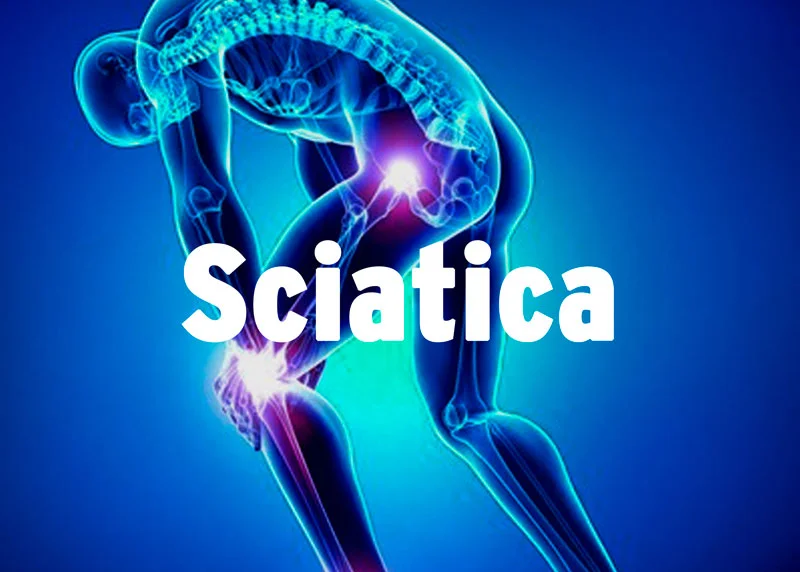Sciatica is when the sciatic nerve, which runs from your hips to your feet, is irritated. It usually gets better in 4 to 6 weeks but can last longer.
Symptoms
Backs of your legs, butt, feet and toes will be painful, the pain may be stabbing, burning or shooting, tingling – like pins and needles or numb
Your symptoms may be worse when moving, sneezing or coughing.
How you can ease the Pain.
To help relieve your pain and speed up your recovery:
Do:
Carry on with your normal activities as much as possible
Regular back stretches
Gentle exercise as soon as you can.
Heat packs to the painful areas
Ask your pharmacist about painkillers that can help – paracetamol on its own is unlikely to relieve your pain
Don't:
Do not sit or lie down for long periods – even if moving hurts, it's not harmful and can help you get better faster
Causes
Sciatica is due to something pressing or rubbing on the sciatic nerve.
Slipped Disc (the most common cause) – when a soft cushion of tissue between the bones in your spine pushes out
Spinal Stenosis - narrowing of the part of your spine where nerves pass through
Spondylosis – when one of the bones in your spine slips out of position
Back injury
Treatments from a GP
Exercise and stretches
Prescribe painkillers that help with nerve pain like sciatica
Physiotherapy – including exercise advice and techniques like massage
Physiotherapy from the NHS may not be available everywhere and waiting times can be long. Try Pilates
Pilates involves building strength from the inside out, with strong abdominal and back muscles leading to overall physical strength. That's why it can be so effective for a condition like sciatica. Pilates for sciatica helps build up the deep muscles that can help provide support to the sciatic nerve
Contact sandy@dbchealthretreat.com





